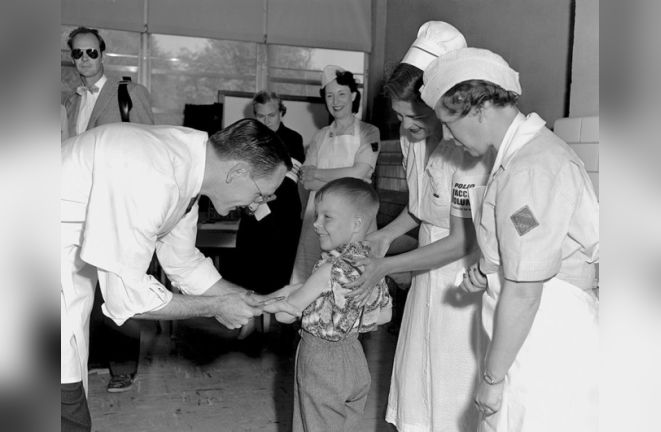Kaiser Health Foundation: Distributing a COVID-19 Vaccine Across the U.S. - A Look at Key Issues
A COVID-19 vaccine or vaccines may become available in the United States in the next several months, at which point the process of actually delivering vaccines to most, if not all, of the population will begin. Although the U.S. has some experience with mass vaccine distribution, including during an outbreak, COVID-19 represents an unprecedented challenge that will require a scale not previously undertaken. Planning has already been underway, including the release of a federal distribution strategy and the federal government’s advance purchase of millions of doses of COVID-19 vaccine candidates. Even so, numerous outstanding questions and challenges remain regarding vaccine distribution, including:
- Funding for Vaccine Distribution. A critical and potentially limiting factor in the distribution of a COVID-19 vaccine is resource constraints faced by state and local health departments. Public health has long been underfunded in the U.S., and the health and economic impacts of the pandemic have further strained the public health infrastructure and reduced revenues. To date, just $200 million in federal emergency funds has been directed to state and local health departments for vaccine distribution.
- Supply, Logistics, and Monitoring. Distributing potentially hundreds of millions of doses of COVID-19 vaccines rapidly, effectively, and equitably represents a public health logistics effort on a scale not seen in the U.S. before. In addition to the challenges of the sheer number of doses likely to be needed, other logistical issues include identifying and vetting a broad network of sites for administration, ensuring cold chain requirements are met, monitoring delivery of multiple doses, and tracking vaccine safety.
- Federal, State, and Local Authority Over Vaccination Requirements. There remain outstanding issues concerning the relative roles and responsibilities of the federal, state and local governments in vaccine distribution in the context of a pandemic which crosses jurisdictional lines. A complicated patchwork of rules and regulations across jurisdictions could result in differential access to vaccines and varying levels of success in controlling COVID-19. Some policy considerations include whether or not vaccine mandates or changes in scope of practice regulations regarding who can administer a COVID-19 vaccine will be pursued.
- Insurance Coverage and Out-of-Pocket Costs. Ensuring that COVID-19 vaccines are covered by insurance and available at no-cost to individuals would greatly enhance access. Both the Administration and Congress have taken steps to address this issue, including advance purchase of millions of doses of COVID-19 vaccine candidates and legislative requirements to provide no-cost COVID-19 vaccines under private insurance, Medicaid, and Medicare, building on existing protections under the Affordable Care Act (ACA). Despite these measures, limitations and gaps remain and some individuals may still face cost and access barriers.
- Addressing Racial and Ethnic Disparities. COVID-19 has had a significant impact on communities of color in the U.S., and the pandemic threatens to further widen racial and ethnic disparities. People of color may face greater challenges in seeking and receiving Covid-19 vaccines due to cost and access issues and may be more reluctant to get a vaccine due to mistrust of the medical system. Taken together, these issues present formidable challenges not only to reaching people of color with a COVID-19 vaccine, but to the success of the overall national COVID-19 vaccine effort.
- Communication and Trust. Except when individuals may be subject to a vaccine mandate, receiving a COVID-19 vaccine will be voluntary, so high vaccination rates will depend on the public’s willingness to be vaccinated. People will have to trust the vaccine, the authorities overseeing distribution, and the provider administering the vaccine. All vaccines face issues of public confidence to one extent or another, yet there are indications that distrust of COVID-19 vaccines may be greater than other vaccines, and concerns about politicization of vaccine approval and distribution. Overcoming this trust deficit will likely require robust communication and trust-building efforts.
Josh Michaud Follow @joshmich on Twitter and Jennifer Kates Follow @jenkatesdc on Twitter
Published: Oct 20, 2020; Kaiser Health News (KHN) is the premier source of health policy journalism. Its staff reporters, public radio station partners around the country and freelance contributors cover politics and issues playing out in Washington and the states.
More Articles
- Medicare Advantage Increasingly Popular With Seniors — But Not Hospitals and Doctors
- Ferida Wolff's Backyard: Not So Ordinary and Goodbye Tree
- Medical Billing and Collections Among Older Americans
- Kaiser Health News*: May 11th Era of ‘Free’ Covid Vaccines, Test Kits, and Treatments Is Ending. Who Will Pay the Tab Now?
- Congressional Budget Office: Federal Budget Deficit Totals $1.4 Trillion in 2023; Annual Deficits Average $2.0 Trillion Over the 2024–2033 Period
- Center for Strategic and International Studies: “The Future Outlook with Dr. Anthony Fauci”
- "Let's start at the beginning" ... Federal Reserve Post About Lessons Learned on Normalizing Monetary Policy: "Additional insight that only experience can bring"
- Federal Reserve Issues FOMC Statement Signaling a March Interest Rate Hike as Well As Reducing the Size of the Fed's Balance Sheet
- Jerome Powell's Testimony at His Nomination Hearing for a Second Term as Chair of the Board of Governors of the Federal Reserve System; A Link to The Beige Book
- The Federal Open Market Committee Statement: The Path of the Economy Continues to Depend On The Course Of The Virus







